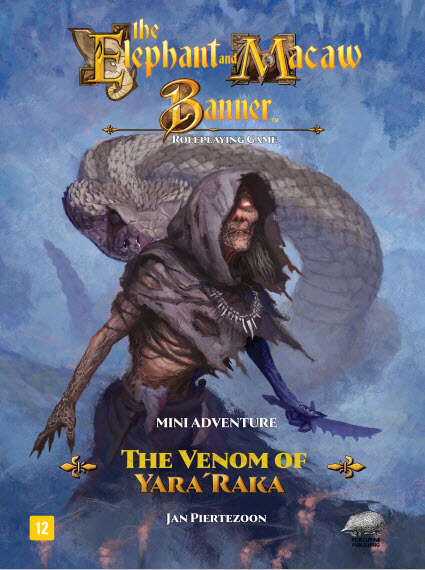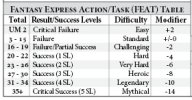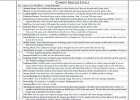- Joined
- Apr 24, 2017
- Messages
- 37,017
- Reaction score
- 110,865
Oh, Everway is an interesting suggestion btw. Cards instead of dice, and the system is kinda wishy-washy, but the chargen system is a thing of beauty, and the setting as presented in the Spherewalker Sourcebook is just dripping with imagination and plot hooks.
It technically meets your criteria, but I suspect it would be a hard sell. If your players have preferences about roll high vs roll low then they may reject card-based resolution offhand (honestly, as a player, I don't really like card-based mechanics either, even when they are more substantially a complete system like Marvel saga. No idea why, it seems to be a purely aesthetic preference).
How do your players feel about dice pools btw?
It technically meets your criteria, but I suspect it would be a hard sell. If your players have preferences about roll high vs roll low then they may reject card-based resolution offhand (honestly, as a player, I don't really like card-based mechanics either, even when they are more substantially a complete system like Marvel saga. No idea why, it seems to be a purely aesthetic preference).
How do your players feel about dice pools btw?



 ?
?
 !
!
 . Care to tell me more...possibly in a new thread
. Care to tell me more...possibly in a new thread
 !) years.
!) years. !
!







 !
!